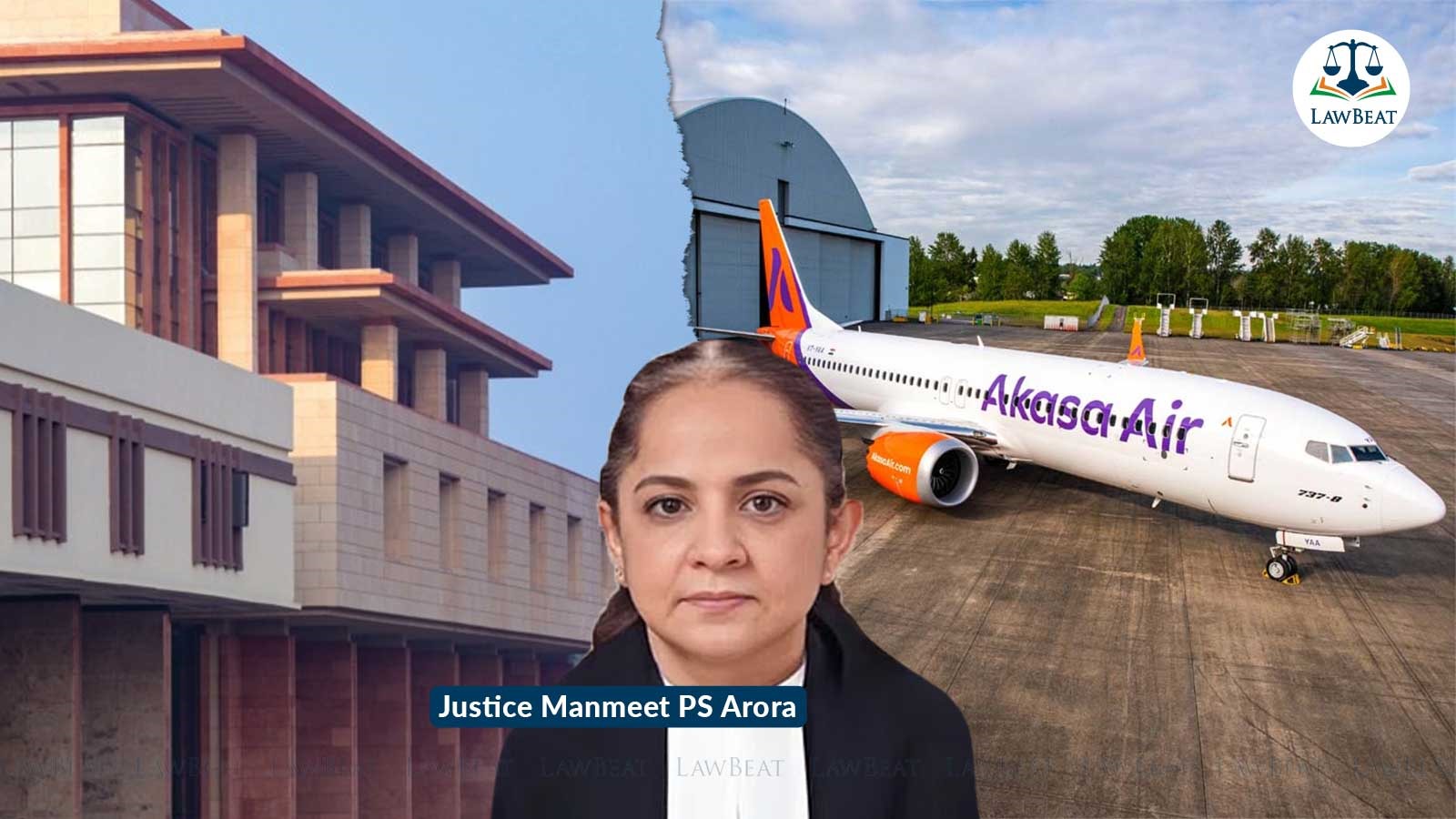BREAKING: "Actions against future infarctions by defaulting pilots cannot be issued at this interim stage": Delhi High Court in Akasa Air's plea

Akasa Air, which operated its first commercial flight between Mumbai and Ahmedabad on August 7, 2022, has said that it was in a "state of crisis" following the sudden and abrupt resignation of 43 pilots who left without serving the mandatory notice period
The Delhi High Court on Wednesday held that actions against future infarctions by the defaulting pilots could not be issued at the present interim stage without first deciding the issue of jurisdiction.
Court was dealing with a plea moved by Akasa Air against pilots who had resigned without serving the mandatory notice period.
The bench of Justice Manmeet Pritam Singh Arora said, “I have decided the interim application”.
The court noted, “The petitioners at the outset have stated that they are not seeking any action against the 43 pilots who have already resigned from respondent (DGCA) and for the present in this petition are only seeking clarification of interim orders dated July 25, 2018; October 11, 2019 and a direction to DGCA to take appropriate action as per extant law for possible future infractions by existing employee pilots of the petitioner”.
On the issue of clarity of the interim orders dated July 25, 2018 and October 11, 2019, the court opined that the orders were clear and unequivocal in as much as the said orders were conditional on the pilots and airlines duly complying with the terms of the contract.
“There is no absolute restraint against the respondent from taking action as contended by respondent no. 1 and 2. To this extent, the court is in agreement with the submissions of the petitioner and rejects the submissions of the respondents IPJ and Federation of Indian Pilots (FIP)”, the court said.
In the facts of this case, since DGCA was contending that it had “no jurisdiction” to consider a representation made by the petitioner against the defaulting pilots under the extant law as it was a contractual dispute, the court opined that the said issue of jurisdiction will have to be decided finally before issuing a direction to respondent No. 1 and 2 to consider and inquire upon the complaint received by the petitioner.
Court further opined that a direction to respondent no. 1 and 2 to decide the representation of the petitioner against future infractions by the defaulting pilots could not be issued at this interim stage, without first deciding the issue of jurisdiction of respondent no. 1 and 2.
“The petitioner is seeking directions for possible future infarctions and the directions sought can wait for the final adjudication. It is however made clear that during the pendency of this petition, in case a pilot acts in breach of the minimum contractual notice period as specified in his/her employment agreement then such an action will be at the Pilot’s own risk and will remain subject to the outcome of the present petition”, the court held.
Accordingly, the court disposed of the application.
Court passed the present interim order on Akasa's plea seeking direction to the DGCA and the Union Ministry of Civil Aviation to take appropriate steps (including by way of issuing necessary notices/ directives) to prevent any further violation of the Civil Aviation Requirement and other rules till the pendency of its petition.
Opposing the plea, the DGCA stated that it cannot interfere in the employment agreement between the airlines and the pilot which itself contains the mechanism of termination of pilots and it would be in the interest of the parties that petitioner airline complied with the mandate of the answering respondent to maintain a limited schedule if it does not have enough necessary number of pilots to maintain the operations of the flights.
DGCA also stated that it categorically denies that the petitioner company has provided any documents or reasons to it in respect of cancellation of flights after the pilots submitted their resignations.
Earlier, SNV Aviation Private Limited and its CEO Vinay Dube had informed the court that its operation has come to be gravely affected on account of flagrant breaches and violations committed by the pilots engaged in relation to the agreements between the Airline and the pilots.
The airline stated that due to the sudden resignation of the pilots, it would have to cancel multiple flights. It also stated that due to these resignations, it had to cancel numerous flights every day in the month of September.
It also stated that none of the resignations tendered by the pilots were issued on account of any legitimate or bonafide reasons. “In fact, most of the resignation emails from the pilots do not even contain any reason or justification whatsoever for abandoning their service almost immediately after their resignation without serving any notice period”, the plea said.
“In past few weeks, several pilots engaged by the Airlines have resigned from their positions in violation of their contractual obligations. Among other things, the pilots refused to serve the mandatory notice period of six months under their Employment Agreements”, the plea read.
Furthermore, the plea stated that a few of the resignation emails gave “vague” and unsubstantiated reasons for the resignations. The collective mala-fides and lack of transparency from the pilots were evident from the fact that all of the emails sought resignation to be effective immediately, the airline's plea claimed.
Case Title: SNV Aviation Pvt. Ltd. & Anr. v. Directorate General of Civil Aviation & Anr.
